Putin Jugend 2.0: How Russia Recruits Ukrainian Children and Prepares Them for War
Since the beginning of this year, the occupiers have initiated a new form of “military-patriotic” work with children in the southeastern regions of Ukraine, violating the Geneva Convention, which explicitly prohibits such actions with the population of occupied territories.
The Kremlin regime is providing military training to thousands of Ukrainian children through the activities of local branches of the so-called “Warrior” (Voyin in Russian) center, positioning itself as a “center for military-sports training and patriotic education of youth.” Simultaneously, Putin’s “Youth Army” initiative is unfolding. Yuriy Yuzich, a retired Major from the Ukrainian Armed Forces and an expert in youth policy, explains the essence and activities of the “Warrior” center.
After the attempt of full-scale capture of Ukraine failed, high-ranking Putin officials decided to “revive in Russia the system of voluntary military-sports training and patriotic education for youth.” The initiative came from the co-chairs of the Russian Union of Martial Arts, specifically from the first deputy head of Putin’s administration, Sergey Kirienko—a well-known specialist in informational-psychological operations against Ukraine, as well as from the deputy head of the Russian government and plenipotentiary representative of the president in the Far Eastern Federal District, Yuri Trutnev, who actively supports Putin’s war in Ukraine and illegally visited the Donetsk region.
In September 2022, the concept proposed by Kirienko-Trutnev to establish a network of military-patriotic centers for youth garnered personal endorsement from the Russian president. Daniil Martynov, a former FSB Alpha Special Forces operative turned “advisor to the minister for emergencies” and known in recent years as “Kadyrov’s assistant,” was appointed as the overseer of this new project aimed at children and adolescents, drawing attention due to his involvement in conflicts in Ukraine on behalf of Kadyrov.
The Security Service of Ukraine (SSU) claims that in the first weeks of the invasion, today’s curator of the “Warrior” project, military criminal Martynov, led Chechen units of the Russian National Guard (Rogvardia) participating in the war against the Ukrainian people. In August 2022, the SSU officially accused Martynov under the Criminal Code of Ukraine of violating the laws and customs of war and of cruel treatment of prisoners of war or civilians.
Initially, Admiral Sergey Avakyants, who had commanded the Pacific Fleet for over 10 years, served as the chairman of the board of the “Warrior” center. Following his departure, Viktor Vodolatsky, a State Duma deputy, “Hero of the LNR,” and “Cossack general,” assumed the position. Vodolatsky, however, is implicated as another war criminal, and he has been placed on both national and international wanted lists by the Security Service of Ukraine under Article 110, Part 3 of the Criminal Code. In May 2023, Vodolatsky narrowly escaped a missile strike launched by the Ukrainian Defense Forces in Luhansk, sustaining injuries but surviving the attack.
The grand opening of 11 regional branches of the “Warrior” Center took place on May 11, 2023. The launch included announcing the recruitment of children and teenagers aged 14-17 for 3-week summer school camps later that year, with 300 participants per camp. Field sessions were planned to be held in the republics of Buryatia, Kalmykia, Tatarstan, Chechnya, Khabarovsk Krai, as well as in the Belgorod, Kemerovo, Pskov, Sverdlovsk, Tyumen oblasts, and the Yamalo-Nenets Autonomous Okrug. In the Belgorod oblast, the center was established almost on the border with Ukraine – in Valuyki settlement, which had once been part of the Ukrainian People’s Republic and was defended by Petro Bolbochan against Moscow’s invasion.
By the end of the summer of 2023, the plan was to train more than 9,000 teenagers, with each camp hosting three sessions. In the first decade of June, all planned camps started operating based on summer health camps. These were military-patriotic camp sessions called “Time of Heroes” (Vremya Geroyev in Russian). The main goal of these schools was to conduct theoretical and practical training sessions aimed at “patriotic education of youth, formation of knowledge and skills in the field of military-sports and moral-psychological training.”
In October 2023, another center appeared in Crimea, based on the children’s health camp “Gagarin” in Yevpatoria. The Russian authorities opened it as the “Avangard” military-patriotic education and training center for children. According to the Russian invaders administration, the first session hosted 100 high school students from Yevpatoria. The invaders claimed that this “branch was established by the State Committee for Youth Policy of the Republic of Crimea at the instruction of the President of Russia.” However, no direct affiliation with the “Warrior” center was officially declared.
Even before the full-scale invasion of Ukraine, in 2021, information regarding the establishment of “Avangard” in Crimea was widely circulated in the media. A land plot of 6 hectares (approximately 14.83 acres) was allocated for construction in Saky town. This was intended to be one of the 37 centers announced by Russian Defense Minister Shoigu at that time. Indeed, such branches began to be established in Saratov, Kaliningrad, Perm, Kemerovo, and other regions, with some opening as early as 2022. The first one, near Moscow, served as a model. However, something went awry. Instead of a grand opening of a new complex last year, the Crimean authorities quietly announced the establishment of the “Avangard” center at the “Gagarin” camp in Yevpatoria.
In all regions except Crimea, the organizers of the military-sports camps “Time of Heroes” were local branches of the “Warrior” center. By the beginning of 2023, these branches were already operational in 12 regions. It is possible that the Crimean “Avangard” was included in this list. It was reported that in the first year of the “Warrior” center’s operation, 20,000 children were trained, although initially, the goal was half that number. Due to the successful launch, new training centers were established. Organizers emphasized that “from the outset, the hallmark of the Center has been its mentors. They are the best in their field, experts in both pedagogy and combat experience. Every day, they impart their skills to the younger generation.”
In August 2023, Sergey Svetov, the executive director of the “Warrior” center, announced on the sidelines of the “Army-2023” forum that the plan was to “establish branches in all regions of Russia, with efforts to increase their number beginning in 2024… the list of regions is being finalized, and I believe it will encompass all federal districts.” Local newspapers in Donetsk and Sevastopol promptly reported that similar centers would soon be established there. Additionally, Svetov confirmed that the “Warrior” center was developing advanced training programs in drone operation and tactical medicine. While activists in Ukraine were still publicly discussing the role of drones on the battlefield, Svetov stated:
“We are currently developing an advanced program for drone operation, which will cover topics such as drone structure and types, their use in various fields. Cadets will be trained in night flying, terrain reconnaissance, and operating in groups of three or four drones. Furthermore, the program on tactical medicine will be expanded, as it has generated significant interest among cadets.”

For the Putin regime, the expansion of the “Warrior” network became more important than the personnel involved in this process. By early 2024, Svetov had already been dismissed. The new director of the center became Igor Kazarev from Rostov-on-Don, holding a Ph.D. in Political Science and the rank of Cossack Colonel. Kazarev is known for his dissertation titled “Technologies of Public-State Management by the Activities of Cossack Communities in Implementing Educational Tasks.” Prior to this appointment, Kazarev served as the Director of the Department for Cossack Affairs and Cadet Schools of the Government of the Rostov oblast. Additionally, within the “Cossack troops,” he holds the position of “first deputy Military Ataman” for the same region, is a member of the permanent commission at the Moscow Kremlin “on Cossack affairs,” and serves as the deputy ataman of the “All-Russian Cossack Society.”
As of early 2024, the network of “Warrior” centers officially extended into the occupied territories of Ukraine. Three branches began to be established here – in the Luhansk, Zaporizhzhia (in Berdyansk), and Kherson (in Henichesk) regions. There is limited information available regarding the operations of these new centers. Propaganda from the invaders only highlighted Kirienko’s personal visit to Berdyansk to inaugurate the center.
Nevertheless, the aggressor is not hesitant to reveal details about similar centers in its regions, offering a general overview of their operational framework. For instance, last month, a “Warrior” center was inaugurated in Sakhalin. Classes and training sessions are held in 10 schools across the region, and new infrastructure for a military-sports children’s camp is under development at the Korsakov airfield. By July 1, 2024, plans are in place to construct a dormitory capable of accommodating 100 cadets, complete with facilities for instructors and a dining hall.
In distant Sakhalin, it is anticipated that only 1800 individuals will participate in the “educational program of the center” this year. Among them, 1200 children will receive training in schools through evening classes, while another 600 cadets will undergo training during two summer camp sessions. All instructors at the Sakhalin “Warrior” center have received relevant training organized and provided by the “central” Moscow center, with each possessing pedagogical education. In total, 20 experts will be involved.
In the first year of operation, the “Warrior” center trained 225 instructors for the initial 12 regions. Half of them are combat participants, and 74 instructors hold the title of Master of Sports or Candidate for Master of Sports. Every fourth instructor has been awarded state honors.
The training of this first batch of instructors lasted two months from March to April 2023. It was conducted with the participation of the Tactical Medicine Training Center and the Practical Shooting Federation in Russia. Training also took place with the support and at the educational base of the Moscow Pedagogical State University.
All initial instructors of the “Warrior” program, totaling more than 160 individuals, underwent training at the Russian Special Forces University in Chechnya, named after Putin. The subsequent stage of instructor training occurred at the “state budgetary institution of additional education,” known as the Youth Multifunctional Patriotic Center “Mashuk.” This facility, essentially established “from scratch,” is situated in the resort town of Pyatigorsk in Stavropol Krai and has the capacity to accommodate up to 600 people simultaneously.
In addition to the first group of instructors, another 47 people additionally underwent the same training as future children’s “mentors.” In August-September 2023, they completed the program “Military-Sports Technologies in Training Citizens in the Basics of Defense and Security.” After completing the training, all these charges of the “Warrior” center received the qualification of “Instructor-Methodologist in Technical and Applied Types of Sports,” which will also allow them to solve professional tasks in the pedagogical, project, and methodological spheres.
In addition to the three occupied regions of Ukraine and Sakhalin, the “Warrior” program intends to establish 7 more branches this year, effectively doubling its network to cover a total of 20 regions. Branch deployment is currently underway in the Volgograd and Murmansk regions, Kamchatka Krai, the Chuvash Republic, and the Republic of Sakha (Yakutia).
The list of new regions for the deployment of “Warrior” branches is quite illustrative: these territories once had a high percentage of ethnic Ukrainians in their population structure. Additionally, among the regions where branches are already operational, national republics are highlighted, known for their significant contributions of recruits for the conflict in Ukraine.
The establishment of new branches of the “Warrior” center is closely linked to the ability to train new children’s “mentors.” Since last summer, the preparation of the second batch of instructors has begun. And at the end of January 2024, a three-month course started for another 100 candidates, who were supposed to spread out across 10 regions to create new branches (including the aforementioned occupied territories in Ukraine). 20% of these personnel are combat participants. The beginning of the new course was personally welcomed by Sergey Kirienko:
“I am confident that as a result, you will gain the knowledge and skills that, together with your professional experience, will allow you to create conditions for raising true patriots, ready to prove their love for Russia not only in words but, first of all, in deeds, preserving and safeguarding the traditional values of our society.”
The training of instructors this time occurred at the Tyumen regional branch of the “Warrior.” The course was designed to last for 620 hours (according to other sources – 520) and was scheduled to conclude by the end of March. Practical classes in military-applied disciplines were conducted at local Tyumen venues, including the “Avanpost” center, the sports and shooting complex “Stalnoy Azart,” and the children’s health and educational center “Alye Parusa.” In addition to the main program, instructors were required to complete courses in off-road motorcycle handling and initial training to obtain a license to purchase smoothbore firearms.
The partner of this second training stream was Tyumen State University. Each graduate was supposed to receive a diploma of professional retraining with the assignment of the qualification “Instructor in a sports discipline (military-applied sports), a teacher of additional education.” As of mid-May 2024, more than 300 instructors are involved in all branches of the “Warrior” center. Another hundred or so are undergoing training and will “soon” start working in new regional branches.
The alignment of personnel efforts by the “Warrior” center with the training system for educational personnel is also apparent in other instances. Since May 2024, the “Warrior” has initiated pilot testing of student military-patriotic centers based at pedagogical universities in the southern regions of Russia. Notably, an agreement on cooperation was signed with the Dagestan State Pedagogical University named after Rasul Gamzatov as part of the launch of the educational program “Modern Approaches to Organizing Pedagogical Activities in the System of Military-Patriotic Education.
If Kirienko’s role in the “Warrior” program is evident in overseeing overall coordination and support, his partner Trutnev focuses more on the educational aspect. In February 2024, Trutnev stated that the “Warrior” centers would be responsible for training teachers in initial military training and patriotic education. This announcement was made during his visit to the UAV management training complex established at the branch of the center in Buryatia. Trutnev, who serves as the deputy head of the Putin government and the plenipotentiary representative of the “president” in the Far Eastern Federal District, remarked:
“Now we are entering the next stage of development, where the ‘Warrior’ centers will evolve into centers of expertise for training teachers in patriotic education and initial military training in schools, ensuring comprehensive coverage of all children. The current circumstances, with the country at war, underscore the deficiencies in patriotic education and the training of schoolchildren. Every individual should be capable of defending the Motherland… We will spare no effort to fulfill the President’s directives… We will enhance the functionality of the centers… and integrate them closely with schools to ensure a comprehensive system of patriotic education and initial military training.”
The complex for training UAV operators in Buryatia, the local branch of “Warrior,” opened on January 27, 2024 at an army training ground near Ulan-Ude. This is a completely new infrastructure. It includes a modular building where a training class equipped with modern equipment is located. Cadets practice controlling virtual drones on special simulators. After that, they hone piloting skills on a real track. The training ground also features special targets for FPV drones, similar to metal hoops on special racks.
“Instructors who have undergone training and have combat experience work here. They have been trained in a special center in Gudermes and in Moscow: military medicine, tactics, mine-explosive affairs, marksmanship, drone management, and other necessary areas. Everyone who returns… [from the frontlines in Ukraine] can also work here, and we are ready to accept them additionally,” said the head of Buryatia, Alexey Tsydenov, practically talking about the graduates of the first stream of “Warrior” instructors, who now operate in the republic.
The “Warrior” branch in Buryatia was among the first to be established, inaugurated in May 2023. In less than a year of operation, training has been completed by approximately 1,700 individuals, including students from educational institutions of the republic, as well as employees of republican and municipal authorities. The training curriculum also incorporated UAV management. All participants, irrespective of age, are referred to as “cadets.”
If the “Warrior” center has established a specialized UAV base in Buryatia, then in the Belgorod Oblast – bordering with Ukraine – the center is deploying its first engineer-sapper range. Last summer, a designated land plot was allocated for this purpose. This range will facilitate practical training in sapper affairs and engineering preparation, including exercises in digging trenches and shelters for personnel, dugouts, methods of equipping them, and camouflage techniques. Additionally, instructors from the “Warrior” center will undergo training at the range to enhance their professional qualifications.

Operationally, all branches of the “Warrior” center implement two school courses for children aged 14-17. One is a three-month intensive course during the academic year, with classes held three times a week. The second is a three-week camp during the summer holidays called “Time of Heroes.” Last year, each branch managed to hold 2-4 sessions of the camp, with some branches not fulfilling the quota while others maximizing it. During the incomplete academic year, 6.6 thousand children underwent the first program, while up to 20,000 children participated in the second one. The program utilizes interactive forms appealing to children, including virtual reality technologies, modern medical simulators, and laser tag equipment.
The director of the “Warrior” center, Igor Kazarezov, boasts: “We have several programs for both teenagers and citizens over 18. The first program is “Military-sports training and patriotic education.” It is designed for young people aged 14 to 18 and aims to strengthen their physical and moral qualities. Classes are held three times a week after school. In three months, teenagers master the basics of tactical medicine, engineering, tactical and firearms training, organization of communication and UAV piloting, study the basics of national security, and consolidate the results within the framework of sports-tactical games.”
The summer sessions of the “Time of Heroes” camp are held at children’s health camps and other specialized educational institutions. Each morning starts with raising the flag. Then, the center’s instructors introduce the children to military-applied disciplines. Teenagers are taught how to handle weapons, organize communication, control quadcopters, and provide first aid to the wounded. Concurrently, ideological indoctrination is carried out in the camps: through lessons of courage, meetings with veterans of the war in Ukraine, and famous athletes. Approximately 60 such camps (sessions) were held last summer, with an average of 300 children in each.

Among the instructors of the “Warrior” center, many are noted to be veterans of the war in Ukraine. In the branch of the center in the Khabarovsk Krai, instructors include not only veterans but also official “Heroes of Russia,” whose names are not disclosed. Tactical and firearms training sessions here are led by reserve Colonel Evgeny Pletnev, a sportsman and special forces veteran with combat experience in the Second Chechen War. After retiring from active service, he acquired pedagogical skills and now imparts his experience and skills to children aged 14-17. Evidently, he recognizes the importance of his personal example for the students, some of whom are orphans.
Nikolay Chumudov serves as the head of the “tactical training” department in the Kalmyk branch of the “Warrior” center. Chumudov is a combat veteran and participated in the war in Ukraine as a volunteer. He completed his compulsory service in the Baltic Fleet as part of the crew of the ship “Kalmykia.” Following demobilization, he earned the “black beret” and continued his service under contract in one of the marine infantry units in Sevastopol. Chumudov gained combat experience in Syria and later served as a contract sniper. He sustained injuries on the front lines in Ukraine and was awarded the “For Courage” medal. Chumudov joined the “Warrior” center by invitation.
It wasn’t until a year of active operation that “Warrior” formalized its relationship with the Federal Agency for Youth Affairs (Rosmolodezh). An agreement on cooperation and interaction was signed In Moscow, on May 12, 2024. The press service of the federal agency highlighted the significance of training instructors for the further expansion of the network: “Participants in the All-Russian service project ‘Your Hero’ are also contributing to the work at training centers as part of our program, RosPatriot. Returning fighters from the front lines acquire instructor skills to impart their knowledge and experience to the younger generation.”
The “Warrior’s” expansion into the occupied territories of Ukraine was spearheaded by the first deputy head of the Putin administration, Sergei Kiriyenko, during his unauthorized visit to the Zaporizhzhia region in early February 2024. Kiriyenko personally assessed the plan for construction and installation work at the local branch of “Warrior,” which the invaders are preparing to establish on the premises of the children’s health camp “Iskra” near Melitopol town. A comprehensive reconstruction of the camp, involving major repairs and replacement of engineering networks, has been announced.
In other words, the Russians have publicly declared their plans to conduct military training for Ukrainian children aged 14 and older. From the age of 16, they are being primed for immediate mobilization. This represents a blatant violation of Article 51 of the Geneva Conventions.
In May 2024, the planned opening of a local branch of the “Warrior” center was announced in Luhansk. The location is being arranged within a five-story building formerly serving as a student dormitory of the Luhansk College of Automotive Service. The facility will accommodate 60 cadets for continuous study, with educational classrooms, a hostel, a library, and a museum being established for them. According to Ivan Kusov, the so-called Minister of Education and Science of the LPR, the center will offer training in UAV management, robotics, and cyber-technologies.
In the occupied territory of the Kherson region, the branch of the “Warrior” center is overseen by Andrey Sabinov, a deputy of the “Regional Duma” (Regional Parliament). Sabinov, who previously served as part of another Moscow-Cossack formation, volunteered to fight on the front lines against Ukraine last year. Before his election to the Duma from Putin’s party, Sabinov had served as part of a volunteer assault corps. It’s notable that during World War II, a similar Cossack corps fought as part of the Waffen-SS.
According to Sabinov, in April 2024, 58 children from Kherson enrolled in the first training course at “Warrior” and immediately embarked on military field exercises. The training took place at the Henichesk Construction College. To facilitate the operation of this “Warrior” branch, equipment for UAV management training was purchased initially. Surprisingly, this initial course was completed on May 18 by 70 young men, who were students of the same construction college. This summer, no changes are planned for the camp sessions in the Kherson region; however, starting from September, Sabinov intends to continue shaping the minds of Ukrainian children with a new recruitment drive for the local “Warrior” program.
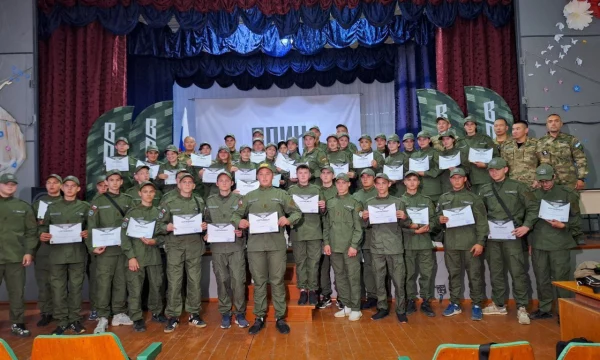
In addition to establishing the “Warrior” center and deploying its branch network, Kiriyenko and Trutnev furthered their involvement in late 2022 by independently creating a special combat unit called “Union” to participate in the war against Ukraine. This unit comprised approximately two hundred fighters from their martial arts alliance, described as “the best of the best” in their respective sports disciplines. Selected candidates also underwent training at the special forces university in Chechnya. The funding for the Union fighters was primarily provided by Rosatom, an organization previously headed by Kiriyenko for many years.
The financing structure of “Warrior” remains undisclosed, but it appears that funds are collected following a similar scheme to Kiriyenko-Trutnev’s initiative for the Union combat unit. Apart from Rosatom, contributions to this initiative were also made by Sberbank, RusHydro, Lukoil, VTB, as well as smaller “businesses” from the Far Eastern and North Caucasian districts of the Russian Federation, where the initiators of “Warrior” hold financial interests and political influence.
“Our objective is to cultivate a spiritual armor for the younger generation, shielding them from any attempts to ‘reorient’ their views and actions towards values and traditions alien to our own. The skills and competencies provided to young people by the ‘Warrior’ center constitute a potent component of this armor,” remarks Viktor Vodolatsky, the head of the “Warrior” management board, who is wanted by the SBU for war crimes. He specifically addresses Ukrainian children in the territories of Ukraine occupied by Russian invaders.
SUPPORT MILITARNYI
Even a single donation or a $1 subscription will help us contnue working and developing. Fund independent military media and have access to credible information.


 Вероніка Грищенко
Вероніка Грищенко 
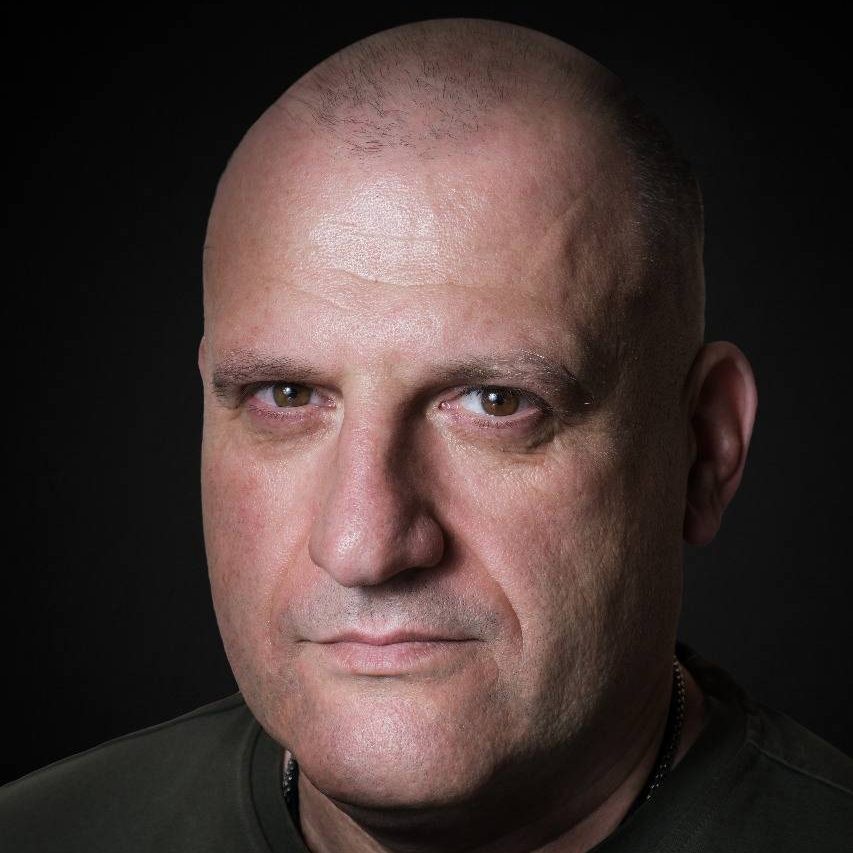 Андрій Соколов
Андрій Соколов 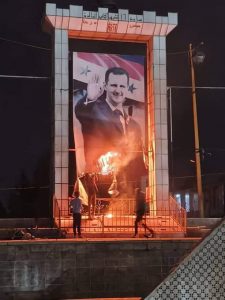
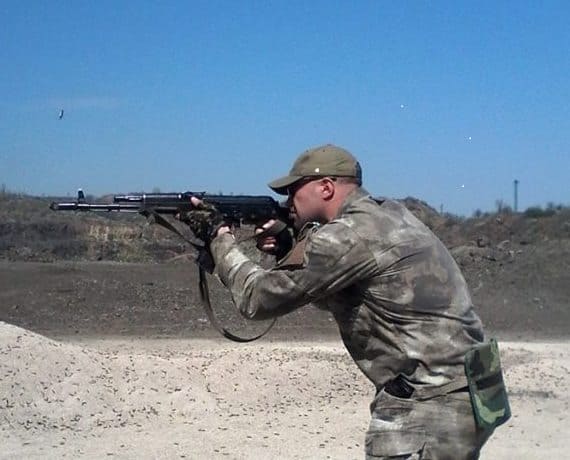 Urich
Urich 
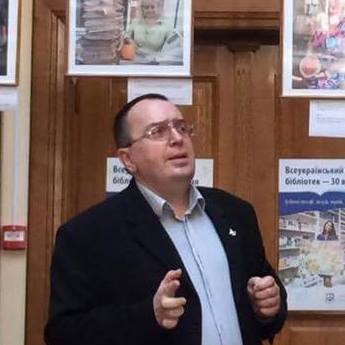 Андрій Харук
Андрій Харук 
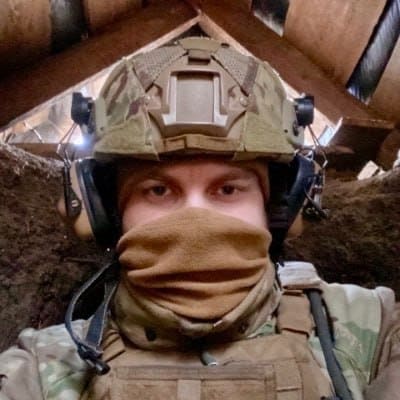 Контужений Безпілотник
Контужений Безпілотник 
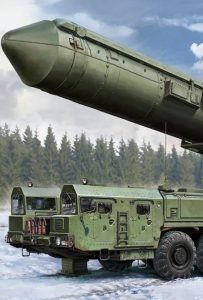
 Центр ініціатив ПЖ
Центр ініціатив ПЖ 
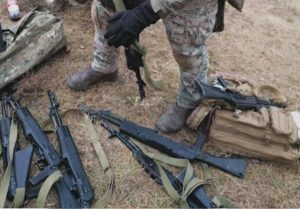
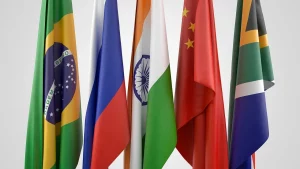
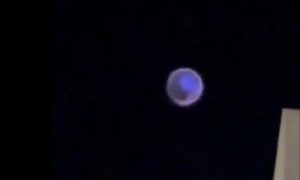
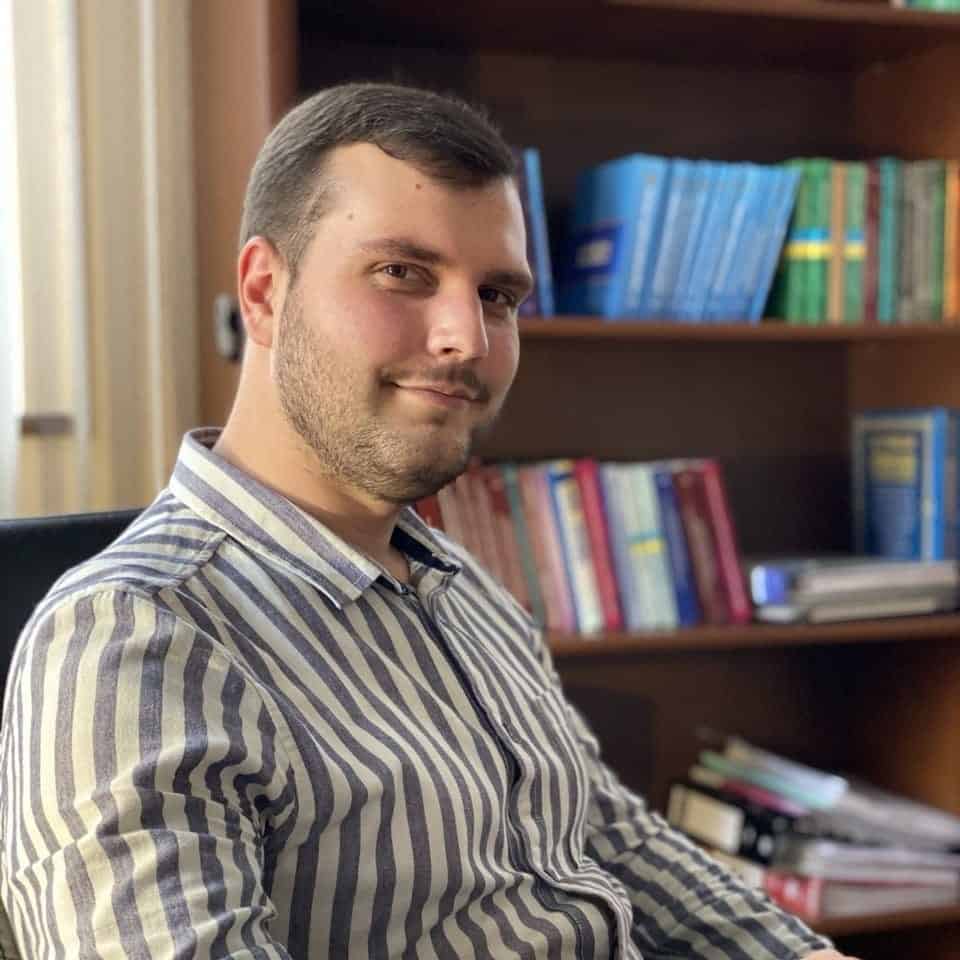 Vadim Kushnikov
Vadim Kushnikov 
 Андрій Тарасенко
Андрій Тарасенко 
 Юрій Юзич
Юрій Юзич 


